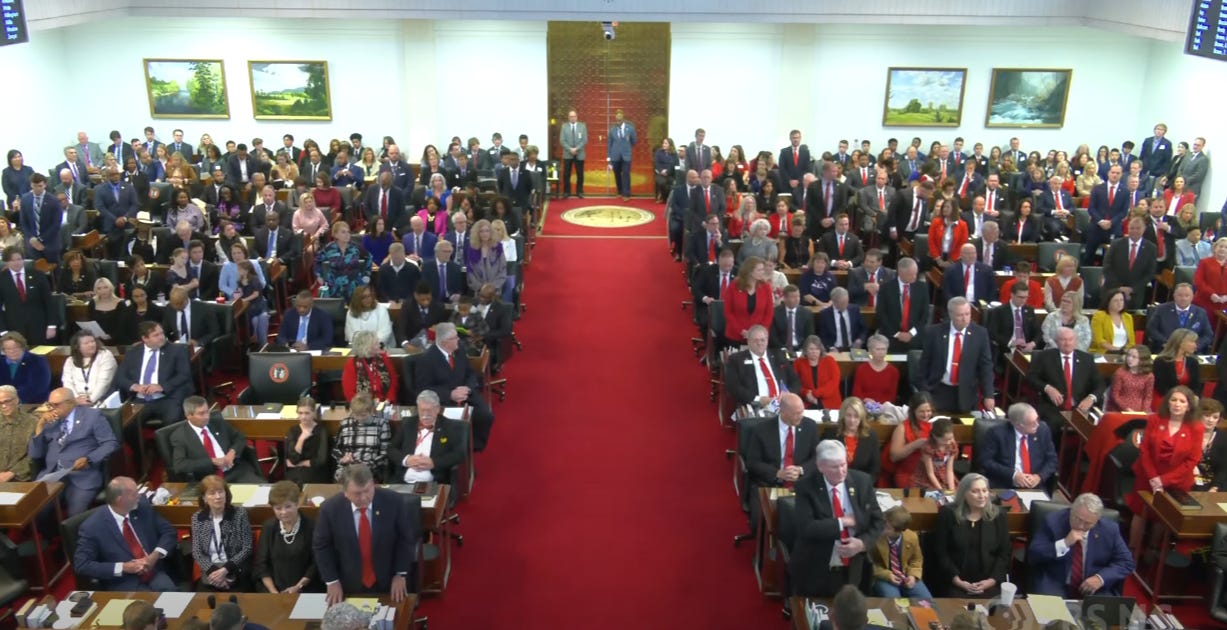NC Bill Could Strip Towns of Development Control, Apex Calls It 'Reckless and Ridiculous'
Bill could dramatically alter how towns like Holly Springs plan, negotiate, and approve future development
Holly Springs, NC, Apr. 29, 2025 — A Bill moving through the North Carolina General Assembly is raising alarms in small towns across the state, including right next door in Apex, which passed a resolution (link) to oppose the measure last week. The legislation, House Bill 765 (H765), could dramatically alter how towns like Holly Springs plan, negotiate, and approve future development.
What the Bill Does
House Bill 765, titled the “Local Gov. Development Regulations Omnibus,” proposes dozens of changes that would limit the ability of local governments to manage land use. Among the bill’s most controversial provisions:
Requires towns and counties to approve or deny most development applications within 90 days, or else the project is automatically approved.
Prohibits municipalities from enforcing residential design standards—including home aesthetics, parking requirements, and even sidewalk placements—unless in historic districts.
Mandates a minimum housing density of 4 to 6 homes per acre in all residential zones with public sewer access, depending on the town's size.
Bans towns from negotiating project conditions—only allowing “yes or no” votes with no modifications.
Allows developers or trade groups to sue individual elected officials or planning board members personally if they vote against a project and are later deemed to have done so improperly.
Who Sponsored It and Where It Stands
The original bill was introduced by Rep. Jeff Zenger (R-Forsyth) and has since been revised and advanced out of the House Rules Committee. As of April 17, it is awaiting further House debate and floor votes.
Supporters argue the bill will streamline housing construction and eliminate barriers to affordable housing. Critics say it does the opposite—empowering developers while silencing both towns and the people who live in them.
Apex Takes a Stand
The Town of Apex passed a resolution opposing House Bill 765, calling it “reckless and ridiculous.”
Town leaders warned that the bill would strip municipalities of their land use authority, silence public input, and expose elected officials and planning board members to personal lawsuits if they voted against a development.
“This bill would effectively end local control of land use decisions and remove all public input, through the ballot box or otherwise, in how their town grows and is run,” the town wrote.
The resolution also criticized the bill for banning project negotiations, requiring up-or-down votes, and eliminating Apex’s ability to enforce environmental protections, such as its tree ordinance.
Apex officials predicted that the bill would hinder, rather than help, housing development by shutting down collaboration between towns and developers.
“The legal threats contained here will cause local officials to back into corners, completely shutting down communication, and rely on other tools to address community concerns.”
Who Might Benefit and Who Might Lose
Pros and Cons of H765
Pros (Supporters Say):
It could increase housing supply by speeding up approval processes.
Prevents towns from creating inconsistent or restrictive zoning rules.
Adds predictability for builders and investors.
Standardizes minimum densities to help affordability.
Cons (Critics Say):
Undermines home rule and local democracy.
Suppresses public input and public hearings.
It could overwhelm infrastructure and schools with fast-tracked growth.
Opens town leaders to lawsuits for making community-based decisions.
Eliminates the flexibility to adjust projects based on neighborhood needs.
What Other States Are Doing
North Carolina is not alone in this debate. States like California, Oregon, Montana, and Arizona have advanced bills limiting local control in the name of housing reform. While some policies succeeded in boosting unit counts, others—like Montana’s SB382—were ultimately rolled back due to rural backlash. Key takeaway: "one-size-fits-all" rarely works well in diverse local contexts.
How Holly Springs Residents Can Weigh In
Your voice matters—especially on legislation that could permanently shift how our town grows, who decides what gets built, and whether local officials can still represent the people who elected them.
If you want to share your views on House Bill 765, here’s how to contact the state legislators who represent Holly Springs and the bill’s lead sponsor:
NC House of Representatives
Rep. Erin Paré (R-HD37)
Erin.Pare@ncleg.govRep. Julie von Haefen
Rep. Jeff Zenger (R-HD74) (Lead sponsor of H765)
Jeff.Zenger@ncleg.gov
NC Senate
Sen. Sydney Batch (D-SD17)
Sydney.Batch@ncleg.gov



Senator Lisa Grafstein also represents most of Holly Springs after the last redistricting. Lisa.Grafstein@ncleg.gov